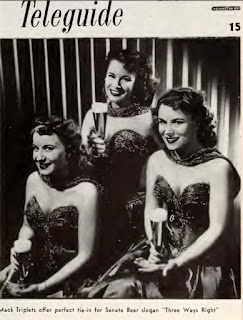Tell Me Why You Act That Way You Do / That You Will Be Mine
1961 — McMackon M17
True Love / Yes Daddy Let Your Love Be Mine
1962 — McMackon 17
Love Me Again / You're Allright With Me
1962 — McMackon 26
I Like To Dance With My Baby / It Is You Baby On My Mind
1965 — McMackon 35
Mirror, Mirror On The Wall / I Wish I Knew, I Wish I Knew
1967 — McMackon Mack 55
I Wish I Knew / Love Me Again
First releases had this address :
795 St. Nicholas Ave. New York
According to jukebox george at 45cat.com "795 St. Nicholas is an apartment building [50 or so units] in the
Hamilton Heights/Sugar Hill section of Harlem, about 2 km north of the
Apollo Theater"
Later releases had no address, just a phone number : JU 6-0499 New York
Mysterious Iona Mack, about her I wish I knew... more. Was it a pseudonym? Did she had a previous and long career under another name? That's what I like to think...













